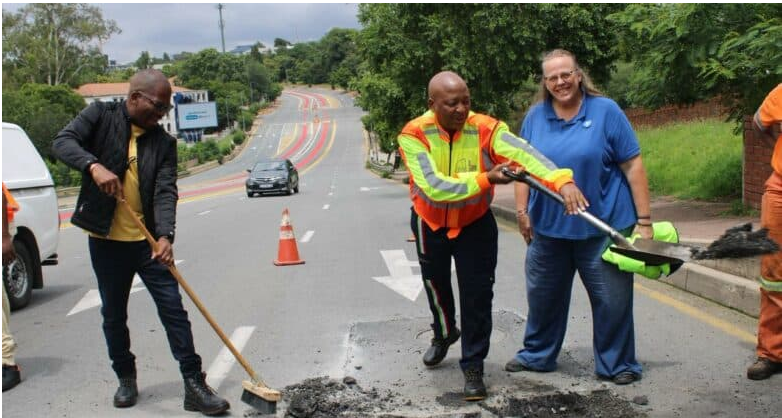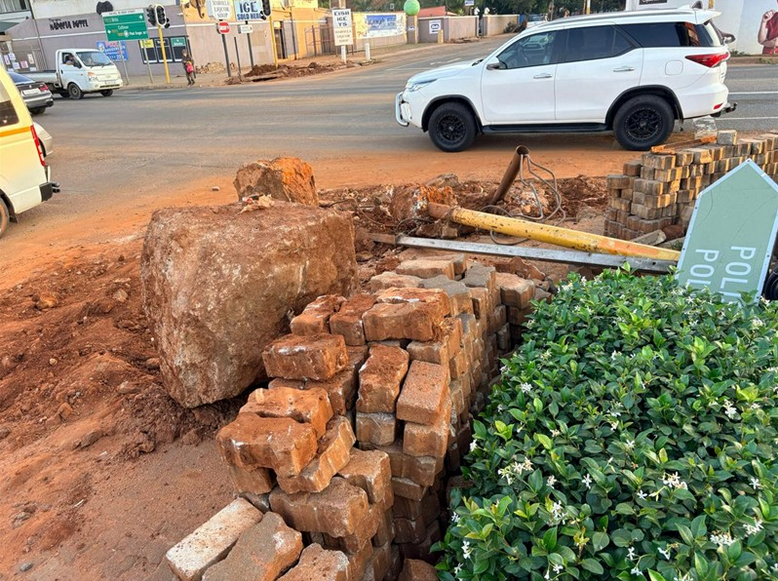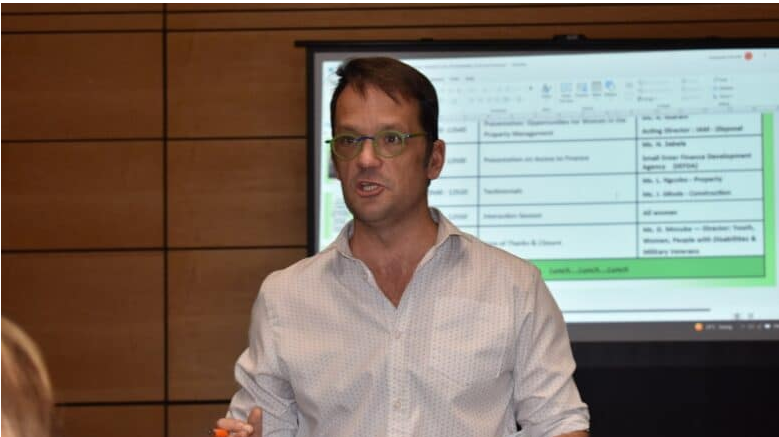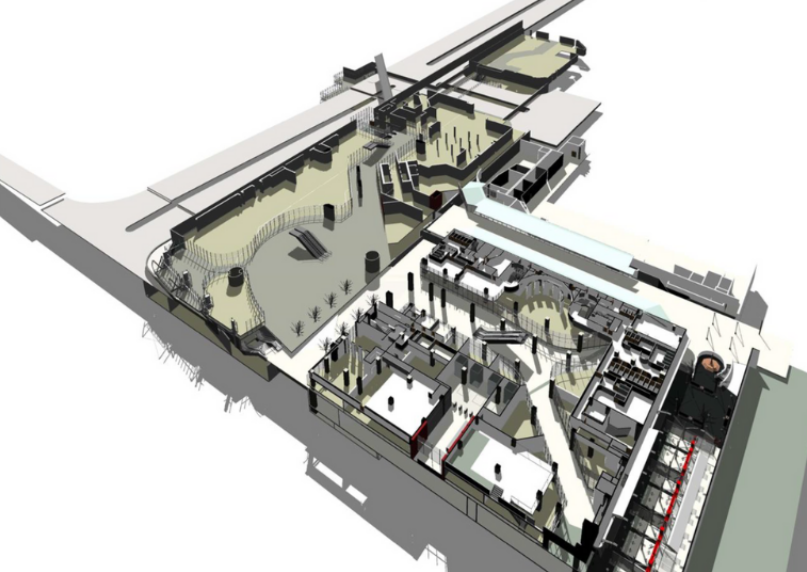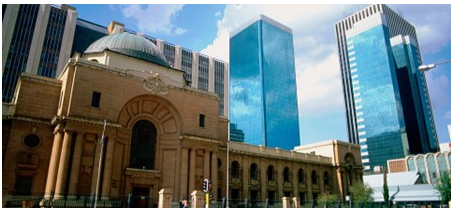Stefanutti takes multiple hits; looks to cross-border profitability

Advertising
31-05-2019
Read : 230 times
Moneyweb
Source
Company is hopeful investment in infrastructure by the Ramaphosa administration will boost local order book
NOMPU SIZIBA: Construction company Stefanutti Stocks continues to highlight a very distressed South African trading environment. They released their annual results for the year ended February 2019. The group reported an operating loss of R158 million, an improvement on the loss of R506 million the year prior. Headline earnings per share reported a loss of 65.99 cents from the previous loss of 301.77 cents.
The group says its order book stood at R11.5 billion at the end of February, with 43% of that book stemming from business outside South Africa.
To tell us more about what’s been happening at the company I’m joined on the line by Willie Meyburgh, the CEO of Stefanutti Stocks. Willie, it sounds like you are still experiencing a serious winter in the arena that you are playing in, particularly here in South Africa. Just give us a sense of what’s been happening in your Construction and Mining divisions.
WILLIE MEYBURGH: In the Construction and Mining division, relative to last year, the turnover went up slightly, but unfortunately the operating profit went down from, I think, R150 million down to R112 million, and that was largely due to a client that was liquidated in the mining sector, and also due to a loss-making project in the Roads and Earthworks division.
NOMPU SIZIBA: So you’ve touched on the issue of your pursuing a number of contractual claims and compensation, specifically on a large public-sector power project. Just tell us a little bit about that, and how you are faring in that area.
WILLIE MEYBURGH: It’s quite a large project for us. The project started in 2011. It was a 4.5-year project, and it is going to end up at an 8.5-year duration, which will only end in 2020. It was due for completion in 2016. In terms of the tender value to the final value, it has increased three times in size. We have been in discussions with the client, and there is a moratorium in place to try to resolve all the issues, but I think we have now reached the point where we have some differences, and the client has decided not to compensate the players for future costs on our supervision and plant and equipment, which obviously has a negative effect on our business. So we have provided for a sum of R263 million to complete this project at our own cost.
Obviously that is not a fait accompli. We will fight this at all costs, and make sure that it doesn’t happen. But, in terms of the international accounting standards, because there is uncertainty in terms of the work in progress, we have to make provision for it now, although it might not happen. That is why our result went down to R158 million negative and, if it were not for this provision, at least it would have been positive around an operating profit of R105 million – which is down from last year. But as a result of this provision we’ve had to make, the result is now at negative R158 million.
NOMPU SIZIBA: Understood. Your building business also saw revenues decline by R1 billion to R3.4 billion, but your UAE, or United Arab Emirates, operations have held up nicely. Just tell us about that.
WILLIE MEYBURGH: The building market in South Africa at the moment is extremely competitive, and the tender prices and the margins that comprise those are absolutely ridiculously low. That’s why we are very selective in what we price for and whom we price for because of that. And for that reason we were not successful on projects, because we were not going after the turnover; we would rather look at being more selective and find projects where we could get better returns.
The coastal regions in our business did very well; so did Mozambique. But we had to allow for some losses on this [public sector] power project during the year as well.
In terms of the Dubai business, over the last number of years [it] has been good to us, and the record profit for this year from Dubai I don’t think will be repeated going forward, but it will still be very profitable, and was quite a good investment by us to invest in that part of the world.
NOMPU SIZIBA: Your Mechanical and Electrical business saw revenues increase nicely from R1 billion to R1.2 billion, but then I see that a once-off claim against your Oil and Gas division curbed your profit. What happened there?
WILLIE MEYBURGH: We received a claim against us from the international client, and we settled under duress because we were threatened that the could project would go in all sorts of directions. We took a R38 million knock on that project, which resulted in a R90 million loss on our Mechanical and Electrical division.
But, in terms of the order book, I think they have a reasonable order book, and they have been awarded some good work over the last month or so, so I think we can expect that they will return to profitability next year.
NOMPU SIZIBA: When you say that you’ve paid the claim under duress, it means that you really don’t feel that you should have had to pay the claim, but you decided to do so in order not to forfeit a project altogether – is that what you are saying?
WILLIE MEYBURGH: Yes, that’s exactly what it is. I don’t want to go into the detail of the project. Under normal circumstances we would have taken that to arbitration, but we reluctantly accepted the claim against us, otherwise it probably could have caused more problems for our cash flow.
NOMPU SIZIBA: I see that in the period under review your capital expenditure declined to R109 million, compared to R500 million the year before. What areas of the business did you invest in?
WILLIE MEYBURGH: I think R68 million of that R109 million was for expansion, and the rest was maintenance. Of that R68 million, we invested in some property in Mozambique because the house rentals in Maputo are very high, and we invested in that property to be able to house our staff. That property, with the current house rentals in Maputo, will pay for itself within a three-year period.
NOMPU SIZIBA: Super. You’ve indicated that you’ve landed into a short-term liquidity crunch. What plans have you put in place to overcome that?
WILLIE MEYBURGH: I think what has caused this problem was obviously the liquidation of that mining client, which I mentioned earlier. The fact is that we had to fund that project and also [deal with] late payments by clients. So the effect of the outcome of what we call mediation, for now, could have an effect of between R400 million and R200 million, depending on which way it goes. So we have already secured or made an agreement with our bank that R200 million of that they will provide.
The rest we plan to get from the outstanding debtors, and that’s not the ones from Zambia or Nigeria. It’s from local debtors, where I think we just need to push them over the line to make sure that they pay us the money soon. And then we’ve also got some equity that we invested in some developments with developers, and I think we’d like to make sure that we can turn that into cash. As an actual last resort, we will then look at issuing more shares. That will be the absolute last resort.
NOMPU SIZIBA: Willie, it really sounds like you’ve had a horrid time, but what’s the outlook going forward, and what are your plans?
WILLIE MEYBURGH: Over the last year or so, we secured very few projects here in South Africa; mainly cross-border where currently 43% of the R11.5 billion order book is from outside our country, primarily in sub-Saharan Africa and also in the Middle East. I trust that the new government that is in place will invest in the infrastructure in this country because, over the last year or so, 140 000 people lost their jobs, just in the construction industry, and I think government needs to look at that, because that’s one industry that can provide jobs well. And I think our infrastructure certainly needs some upgrading and there is work they need to do to make sure jobs are created – and not just create jobs for the sake of jobs, but where the country can benefit from the infrastructure.
NOMPU SIZIBA: Many thanks to Willie Meyburgh.
Recent News
Here are recent news articles from the Building and Construction Industry.
Have you signed up for your free copy yet?
